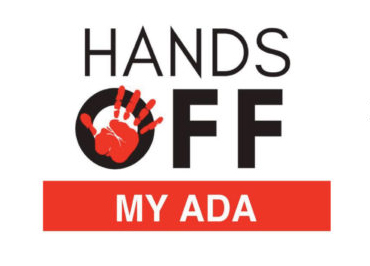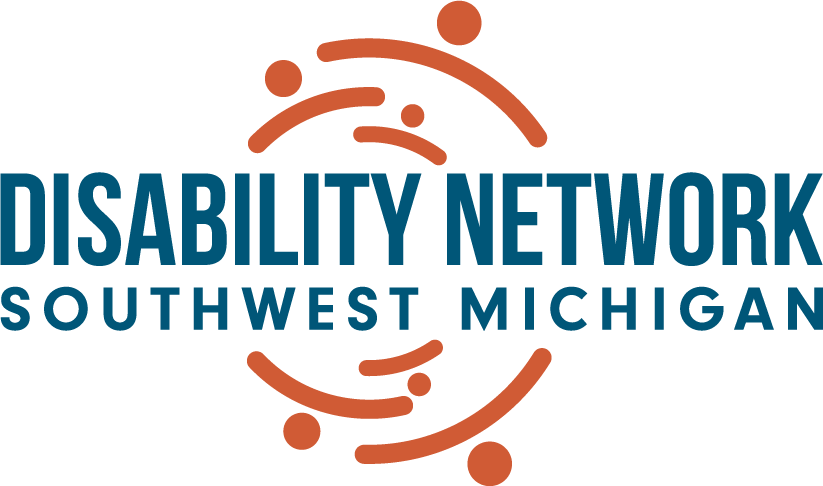 The US House of Representatives is set to vote this week on HR 620. This is a proposed bill that would greatly reduce the power of the ADA. Below are a couple of links to articles with more information but here is the bottom line as stated in the Disability Scoop article:
The US House of Representatives is set to vote this week on HR 620. This is a proposed bill that would greatly reduce the power of the ADA. Below are a couple of links to articles with more information but here is the bottom line as stated in the Disability Scoop article:
The ADA Education and Reform Act (HR 620) would require a person with a disability to provide written notice to businesses if they encounter barriers to entry. Under the legislation, businesses would have 60 days to acknowledge that written notice and an additional 120 days to initiate improvements. However, businesses do not have to fix problems within that time period — only show “significant improvement.”
This seems to pave a path for businesses to basically ignore the requirements of the ADA and kick the can down the road over and over while violating the rights of people with disabilities.
Take Action – Stop HR 620

Here are a few things you can do to help stop HR 620 from moving forward:
- Call your US Congressman’s office and tell them that you want them to vote NO on HR 620 because it violates the rights of people with disabilities! Remind them that roughly one in five people in the United States has a disability and we VOTE! Go to this link to find who your Congressman is and their contact information: www.WhoIsMyRepresentative.com.
- Download the “HANDS OFF MY ADA” sign — fill in your own response to what the ADA has done for you and post it on social media with the hashtags #HandsOffMyADA and #StopHR620.
[gdlr_button href=”http://www.dnswm.org/wp-content/uploads/HandsOff_sign.pdf” target=”_blank” size=”medium” background=”#0079c1″ color=”#ffffff”]Download the Sign[/gdlr_button] - Post or share messages from Disability Network Southwest Michigan’s Facebook page telling your friends about the importance of stopping this bill and encouraging them to also call their Congressman. Be sure to use the hashtags #HandsOffMyADA and #StopHR620.
Position Statement:
Disability Network Southwest Michigan’s board of directors has issued a Position Statement regarding HR 620, the content of which follows or you can download a PDF of our HR 620 Position Statement here
H.R. 620 – ADA Education and Reform Act of 2017
H.R. 620 states: “To amend the Americans with Disabilities Act of 1990 to promote compliance through education, to clarify the requirements for demand letters, to provide for a notice and cure period before the commencement of a private civil action, and for other purposes.”
Although we support design of any training or education in regards to the Americans with Disabilities Act (ADA), we believe HR 620 is discriminatory in that it makes it harder for people with disabilities to file an ADA-based civil rights complaint. As currently written, HR 620 puts the burden of proof on people with disabilities instead of the person committing the civil rights violation. Further, it allows for delays in addressing civil rights violations, something not allowed with any other protected class.
We disagree with having the person who was denied access to give written notice to the owner or operator of a business and in this notice to site specific sections of the alleged violations from the ADA.
We strongly disagree with the provisions allowing 60 days for the owner or operator to provide “a written description outlining improvements that will be made to remove the barrier” and 120 additional days to “remove the barrier or make substantial progress in removing the barrier. Putting the burden of proof on the people who were denied access goes against how our civil rights laws have been enforced. If someone was denied access due to race, color, religion, or national origin the aggrieved person would be able to immediately seek relief to gain access. Having a prolonged period of 60 days to respond and another 120 days to show any progress goes against our nation’s past proactive efforts to immediately cease and desist discriminatory actions.
Businesses have had plenty of time to comply with provisions of the Americans with Disabilities Act, more than 27 years. There should not have to be a notice and cure period for what should have been resolved years ago. This bill puts the burden of monitoring access on those being denied access and letting businesses wait and see if anyone will file a complaint before taking action to comply.
We suggest that a more effective means of dealing with frivolous law suits against businesses with minor infractions of ADA accessibility standards would be to require State building codes to align with the ADA, through adjustments to ANSI Standards. An alternative solution would be for each state to adopt the ADA “Readily Achievable Barrier Removal” policy as a replacement of the State’s Building Code “Grandfather Clause”. We support this action since local Building Code Inspectors are not responsible for enforcing the ADA federal law but the property owners are expected to abide by federal law. This would be the case even though the property owner may have just been informed by the local Building Code Inspector that the property owner did not have to make accessibility improvements because their facility was “Grandfathered” under state building code.
More Info and References:
Here are some resources and references for more information.
- Your can read the a summary or the full text of HR 620 here.
- Read an article in Disability Scoop: Congress Weighs Changes to ADA.
- Read an editorial in the Washington Post: Congress Wants to Make Americans with Disabilities Second-Class Citizens Again.
- Rooted in Rights produced this short introductory video:
